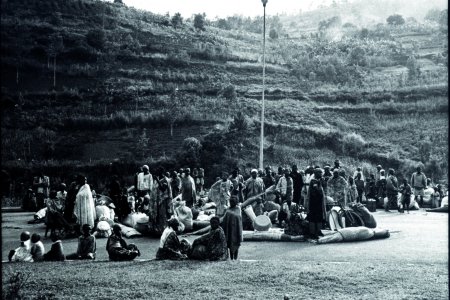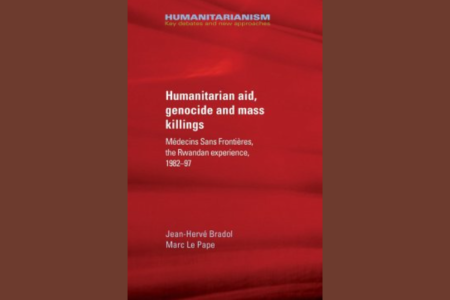
MSF releases the “Speaking out: Srebrenica podcast”
Laurence Binet
This new series, comprised of 5 episodes, examines the challenges and dilemmas surrounding ‘speaking out’, that the MSF teams faced during the siege and subsequent massacre which took place in Srebrenica during the Bosnian War of the 1990s. The podcast series is available in English, in French, in Arabic.
From 1993 when Bosnian Serb forces besieged the town of Srebrenica, MSF was the only non-governmental humanitarian organisation working inside the enclave. In July 1995, MSF staff witnessed the seizure of this majority Muslim city. Later, there were rumours of mass killings and thousands of people were missing, including MSF staff. Today, around 8,000 people are known to have been killed in and around Srebrenica by Bosnian Serb forces. All this, despite the presence of United Nations peacekeeping forces in this so-called ‘safe zone’.
For a decade MSF called on the countries involved to hold enquiries to establish where military and political responsibility lay for the enclave’s fall and the abandonment of its people. The context of the war in former Yugoslavia, and more specifically the fall of Srebrenica, raised difficult questions for MSF. The editor of SOCS “MSF in Srebrenica, 1993 – 2003”, Laurence Binet, explains the context:
“During this period and in this extreme context, the teams in the field and at HQ had intense debates when facing dilemmas. They deliberated whether, by providing medical aid to a besieged population, they were not contributing, like prison doctors, to the strategy of the besieging Serbian troops. They also had to determine whether they should have called for the evacuation of the civilians who wanted to leave and if this would have abetted the ethnic cleansing policy of the besieging army Or, should they have trusted the ability of the UN protection forces to protect civilians?”
This series of podcast offers an in-depth look into these dilemmas through the narration of extracts from MSF documents and press archives to help establish the facts. Interviews with the main MSF protagonists at the time of the events also provide an insight and analysis of the positions they adopted, with personal perspectives from some MSF staff on how they could or should have done things differently.
To know more about the MSF Speaking Out Case Studies: https://www.msf.org/speakingout
To cite this content :
Laurence Binet, “MSF releases the “Speaking out: Srebrenica podcast””, 15 décembre 2021, URL : https://msf-crash.org/en/blog/humanitarian-actors-and-practices/msf-releases-speaking-out-srebrenica-podcast
If you would like to comment on this article, you can find us on social media or contact us here:
Contribute



Add new comment